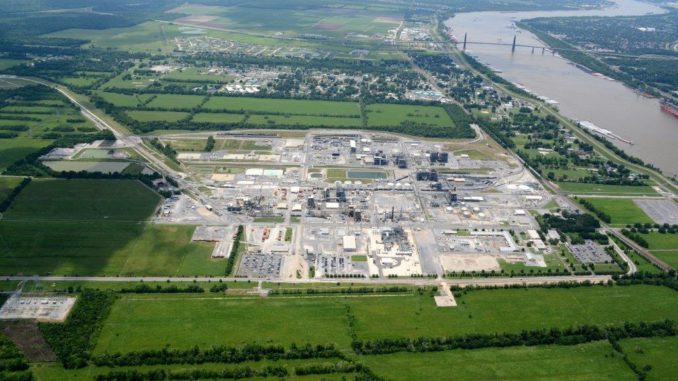
Nearly a year after a World Health Organization (WHO) study labeled glyphosate, a key ingredient in Roundup weed killer, as a probable cancer-causing agent to humans, Monsanto sponsored a panel that has produced a study countering those results.
Company spokeswoman Charla Marie Lord said the panel, composed of expertsfrom the U.S., Canada and Europe, found “no evidence that glyphosate causes cancer.”
Monsanto’s facility in Luling produces the chemical, and a $1 billion investment to produce Roundup Ready Xtend Crop System will be decided early next year.
Calling the study “junk science,” an enraged St. Louis, Mo.-based Monsanto has remained intensely focused on countering WHO’s International Agency for Research on Cancer (IARC) study released in March stating the weed killer’s key ingredient is a probable carcinogenic to humans.
By November, Monsanto retained Intertek Scientific & Regulatory Consultancy to convene the industry-funded panel to review the study.
This month, the 15-expert panel released its assessment of IARC’s study, stating it “suffered from significant weaknesses such as: selectivity in the choice of data reviewed, failure to use all relevant biologic information to evaluate relationship to treatment in animal bioassays, and failure to use weight-of-evidence (WOE) evaluations using all available data and appropriate weighting.” It further states the evaluation concluded “there is no evidence of carcinogenicity in rats or mice” or to humans.
Lord said IARC is only one of four WHO agencies to review glyphosate and the only one to question its safety.“IARC overlooked decades of thorough and science-based analysis by regulatory agencies around the world and selectively interpreted data to arrive at its classification of glyphosate,” she said.
The European Food Safety Authority announced “glyphosate is unlikely to pose a carcinogenic hazard to humans and the evidence does not support classification with regard to its carcinogenic potential.”
For Monsanto, Roundup is the largest selling herbicide brand in the world. Its active ingredient is glyphosate, which the company says was developed and introduced in the 1970s, and first marketed to farmers in 1973.
Lord further states the European Food Safety Authority announced “glyphosate is unlikely to pose a carcinogenic hazard to humans and the evidence does not support classification with regard to its carcinogenic potential.”
Although the panel’s results contradict IARC’s study, the debate further extended to the value of “industry funded” science versus “publicly funded” science.
One of the panel members, David Garabrant, a University of Michigan epidemiologist maintains the public should focus on the quality of the science and not its affiliation.
Glyphosate is an active ingredient in Monsanto’s Roundup® branded herbicides (there is no one product called Roundup) as well has more than 750 other products that other companies manufacture.
For St. Charles Parish, the company’s operations include the production of Roundup, which it stated represented a $196 million investment in the area as of 2008 to make the herbicide. The upgrade was aimed at boosting the company’s global capacity to produce the weed killer and other glyphosate-based herbicides.




Be the first to comment